- Home
- Lindsay Buroker
You Are Here: Tales of Cartographic Wonders Page 5
You Are Here: Tales of Cartographic Wonders Read online
Page 5
“But why, Charlie?”
“You need someone to witness and acknowledge your genius. You need someone who knows.”
The professor closed his eyes, and a blissful expression softened his aquiline features. For an instant, he looked like he was enjoying the finest concert of classical music, mind empty of any malice or worry. “Perhaps there is still hope for you, Charlie.” The pistol barrel went down. “However, I cannot let you step into this time, I'm afraid. I cannot allow to have you interfere now. There's too much at stake. Charlie, you must journey to a different date. Choose wisely.”
With a sigh, Charles turned his back on his enemy and turned the knobs.
1942
Darkness. Panic. Stale air.
Charles stood motionless in a bubble of perfect black, feeling dizzy from any lack of visual reference. He almost stumbled. Gingerly, his heart hammering against his eardrums and his own motions feeling strange and devoid of depth, he reached with his fingers and felt the cold pipes and levers of the time portal.
So he was in the right place.
Terror washed away, and he let out a little groan of relief.
He remembered the little flashlight he carried in his tool pack.
He stepped out of the portal into the cellar. The first thing he noticed was that the floor had been dug up, old stones broken and laid in a pile. Thick steel cables snaked from the side of the portal box and burrowed into the ground. Charles frowned.
He walked down the cellar corridor toward the door leading up into the mansion.
The exit from the cellar room has been bricked. There was no way out.
More panic, until he realized he could always step back into the portal and choose a more distant future.
Was this some kind of a sick trick from the professor? Well, it made no sense. A bricked exit would stop him from traveling, too. Which meant he was somewhere out there, in the present reality, changing the world. Professor Graves had walled the cellar so Charles could not step out.
But why?
His shoe touched something on the dusty floor. A letter.
Charlie, times are very dangerous right now. I cannot let you out. Do not try to break through the brick wall. Do not make any noise. Please. I was forced to implement a number of radical modifications to the estate. The electricity and water to the house have been cut. And if you are really interested to know, there's a thick steel cage around the portal box, to protect it from damage. Most importantly, the presence of this cellar and its technology must remain absolutely hidden from the rest of the world for the foreseeable future. You may believe this is a ruse. For once, Charlie, I ask you to believe me.
Charles let the letter fall to the ground.
He walked back to the portal.
1953
Charles watched the funeral from a distance, the cold rain making his hair slick. Of all things, he had forgotten an umbrella. Emma's family—children and grandchildren—were gathered around the coffin, dressed in somber, thick clothes befitting a miserable London January. The minister was droning softly, his words lost in the icy patter.
His Emma had done quite well. His—no, her—private investigation agency was one of the most sought out law services establishments in Europe. She had not taken any money from his Swiss account, or exercised the will. That made him a millionaire, too.
He was still feeling humbled and shocked by the discoveries of the last two decades. Trying to fathom so much. They felt like 200 years.
Still, deep underneath his misery and a profound sense of loss, there was a beating heart of purpose. Right now, he was a complete stranger in this world. Without any friends or acquaintances. He was a ghost. He was a man who did not exist, except in the secret registers of some of the wealthiest banks on the planet.
He had nothing to lose.
There was only the chase. He would find and destroy Professor Mortimer Graves.
Charles wondered what the professor's role in the Second World War had been. How much had he been involved in machinery of death that had swept the continent? In espionage or military intelligence? Had he aligned himself with any one of the warring parties?
Had he died in the war, like so many people?
No, he cannot be dead. I know it.
Charles decided to stay in that reality, for as long as it took.
In 1958, he found Professor Graves in West Germany. By 1962, the professor had been forced to flee the country, a wanted man. Years later, Charles foiled the professor's plans in Chile and Rhodesia. At that point, he realized he had spent 14 years hunting after his archenemy.
Fourteen bloody years of loneliness, despair and cold, relentless desire for victory.
He started losing his sense of dignity. He hired assassins. He planted a bomb in the estate, then spent a day sitting outside, his thumb poised over the detonator switch. Yet somehow, for some unknown reason, he never pressed.
1978
He found a VHS tape on the chair in the cellar. And a letter, of course.
“The Rocky Horro…” Charles Dover read the title. He opened the letter. “I should bear a deep grudge for your vile, amoral ways, Charlie. Sending common assassins. Really, Charlie? Luckily for you, I am a better and a smarter man between the two of us. You might enjoy this. M.”
After he purchased a cassette player, Charles watched the musical, again and again. That one song made him chuckle every single time.
1985
“You may find this amusing, Charlie.”
Another cassette. “Back to the Fu…”
Bastard.
Surprisingly, a funny one.
Watched it seven times.
1992
Charles limped into the cellar, hot blood spraying the walls. He panted in hoarse, ragged gasps, his left arm dangling lifelessly. He shuffled forward, shoulder rubbing against the wall, leaving a dark smear on the ancient paint. A step. Another. Swallowing a woollen ball of agony, Charles pushed himself off and slammed into the French doors, shattering the red pane. More blood.
Ignoring the shards of glass sticking through his elbow, he shuffled into the portal box. His wet palm slipped on the dials. He fell, hitting his chin on the table, biting through his lip. The mercury pool wobbled. Groaning, he tried to raise himself, coppery spit and bile dancing on his tongue. He couldn't get up.
He put his elbow on the table. And pushed.
The shards wormed deeper. They crunched and shattered and tore his skin from within, pushing out like insects out of their cocoon. He ignored the black net of pain and focused on the dials.
Turn, turn.
Would the professor’s men follow? Did they even know what this portal was?
No time to waste. He had to flee.
1998
His life fluid in the future felt just as real as it had six years ago. Defeated, he crawled all the way up into the living room, and lay on the carpet, panting, waiting. Let them come. He was done.
But the professor's men never showed up. Not through the portal, nor through the house door.
With the rafter ceiling decorated with hunting gear spinning above him—or maybe it was his own vision—he contemplated the finer mechanism of the time portal. Could two people step into the same time? What would happen if they dialed only half a second apart? Would they occupy the same space?
Maybe… the portal would not allow such paradoxes?
He would test it. But first… first aid.
He found the box with gauze and sterile compresses just where he'd left it. Someone had replenished the old expired medicine with a fresh supply. Charles sat there, dripping red on the French furniture, trying to bind his cuts. He swallowed a handful of painkillers and passed out. When he woke up, he sought the nearby hospital.
And got arrested.
2001
Three years in a French prison for burglary.
As soon as he'd left the premises and hospitality of the French judicial system behind him, Charles limped back to the mansion to
find it guarded by a private security company with dogs and cameras. The professor had changed the rules of the game, it seemed. Previously, he had kept Charles locked in.
Now his enemy wanted him locked out.
From the time travel perspective, it made no sense.
But maybe the professor just wanted to torment him.
Or make him old. Kill him with nothing more than the natural process of aging.
Something else?
It took him four grueling years of hard labor, money and danger to gain access to the house again. Then, he spent two years mustering courage to try to send inanimate objects into the future, to see whether they would cause an irreparable rift in the time-space continuum, create a black hole on Earth or anything equally sinister.
What if I jam the portal? An inanimate object may remain in the box forever, and nothing—or no one—else will ever be able to come through? Or they may get destroyed in some horrible metaphysical way?
The only way to test his theory was himself.
So he hesitated, and in 2011, finally decided to abandon all caution. He had expected the portal to stop working. And make him vanish from the fabric of the universe.
2012
Nothing of the kind.
The 100-year-old design of the time portal was flawless, a testament to its creator.
Dialing to the same time simply erased all previous events. Anything already inside the box ceased to be. The future had only one thread.
Forward.
2019
Charles decided to stay in the present. He decided to seal off the professor from being able to access the portal. He hired his own guards. He managed to bribe lawyers and falsify a land contract, transferring the lease of the estate to his own name. He traveled to a hundred countries and made sure to have a safe house with money and weapons. Close to home, he bought a dozen houses in the nearby villages, so he would have an easy escape route from the professor's killers the next time. Despite the advancements in modern medicine, he never regained full mobility in his left arm and leg. Whenever it rained, his muscles tingled with the ghosts of old pain.
Deep down, Charles was pretty sure the professor was living in the present too, biding his time. Lurking, waiting. Building out his network of contacts, expanding his power. Both of them had more than a few companies and investment funds in their name. It was so easy making money when you did not have to wait out the decades.
Years breezed by. Charles felt getting older and lonelier. Bitterness gripped him, and a deep void developed in the pit of his soul. He wasn't even sure how old he was now, but he did not strike a pretty reflection in the mirror. His hair was graying out, his face was creased with sorrow and regret and possibly madness, and his nights were hollow, long, restless and echoing with semi-lucid contemplation of his inadequacy and obsession.
After so many years of drowning in loneliness, he decided to marry. Against his better judgment, against all his instincts. But the loneliness was eroding his sanity. He could no longer bear it.
Charles wasn't sure why Sarah, a sweet, innocent woman who reminded him of Emma, chose to spend her life with him, why she put up with his depression, his ugliness, his disability. For a reason he never quite figured, she just did. He did not deserve her.
In 2029, he found a letter in his home in Paris. It read: “I'm waiting for you, Charlie.”
The next morning, Charles left Sarah and their two children without a word, and dialed into the future.
2088
Charles sat in that old chair, staring at the time portal. With the mind-boggling advancement in modern medicine, he could probably live comfortably another 30-40 years. Another 30-40 years of agony, of madness, and still more regrets. The world was supposed to be a wonderful place, full of things he could never have imagined.
But to Charles, the world was a bleak streak of images. A meaningless rotoscope of imminent death. Billions of smiling faces that would turn to meaningless dust within a century.
The blink of an eye in his own cursed world.
“There, I concede, you win, Mortimer Graves,” the told the empty cellar.
He stepped into the time portal, preparing to dial one last time. Sometime far far into the future. He wasn't worried about himself anymore. He had seen enough futures to know he could never really be prepared, and yet, it didn't make any difference. English as a language was probably not going to disappear, and he would be able to communicate and find his way around.
All that mattered was—he wanted to put Professor Mortimer Graves behind him. Into a distant past. Then, spend the rest of his life, however long it would be, trying to forget the last two centuries of lunacy.
The map of the hyper-space waited.
“Goodbye, Professor.”
He dialed.
2525
He stepped out of the portal box. And frowned.
The cellar had been refurbished. New floor, new walls. It was longer than before, better lit, too.
Modern.
There was something at the far end of the cellar.
A contraption of some kind.
A box.
Something that looked like… doors to a 19th century lift.
Heart pounding, Charles approached, his footsteps clicking on white metal flooring.
The cell had exquisite double French doors, brightly lacquered oak, with detailed wrought-steel leaf patterns framing narrow glass windows made in three colors, like the flag of the Republic. Almost like an entrance to a luxurious brothel.
Charles swallowed.
There was a letter on the floor, waiting for him.
He opened the envelope, took the letter out and read: “Charlie, thank you for your patience. I am glad you could make it. After all these years, despite all the distractions from you, I finally managed to complete this second model. I believe you will be pleased with its design…”
Charles stared at the last sentence in the letter.
“This one, Charlie,” it read, “goes back in time.”
* * *
Igor Ljubuncic
Igor Ljubuncic is a physicist by vocation and a Linux geek by profession. He is the owner of the popular website www.dedoimedo.com. Igor really likes to write, particularly in the fantasy genre, and he even got a literary nomination for his efforts. You can learn more about Igor's books on thelostwordsbooks.com.
ELEUSINIAN MYSTERIES
Charlotte Ashley
Her moon was almost done. Maghfira blew ruddy copper spirals off the newly-carved plate, examining the curves and grooves she had spent the last ten hours engraving. It was not the moon that hung over Amsterdam, but the other side. Hatched with mountains, upside-down and plump as a peach, only the verges suggested familiar landmarks. This moon’s face was a vast expanse of fanciful topography, including a city on the north-western edge of the Oceanus Procellarum—Eleusis.
She had just taken up her graver again when two men entered her shop without knocking. Maghfira squinted from where she sat hunched over her desk, her eyes watery and sore from the hours spent sketching by dim rushlights. For a moment, the crosshatched lines of her project remained burned into her eyes, framing the men in an alien landscape of mountains and oceans, stars and cities.
They were men from the Vereenigde Oost-Indische Compagnie—Dutch East India Company—she was sure. Either that or smugglers, though they amounted to the same thing in the Dutch Republic. The bulkier of the two men waited by the door while the second, a wide-faced, bearded fellow dressed cap to toe in black, perused the sketches, frames and supplies that littered her print shop.
“Hello?” she asked. “Can I help you?”
“Where is your master, Blauwe?” he asked her without making eye contact, rifling through the prints stacked on her small press. The insult sharpened Maghfira’s senses, clearing her starry daydreams with a cold flush of fear.
“I am the mistress here,” she declared, laying aside her graver and standing. “I’m Maghfira van Delsen. What i
s your business?”
“You?” The man smirked and finally looked at her. “Coloured Hollander, are you? Van Delsen’s a Dutch name. Your daddy had a good time in Batavia, I see.”
Maghfira balled her hands into fists and tried to calm her mounting temper. She might be Dutch by law, but there would always be oafs who only saw her Javanese blood. It was, however, the first time someone had come right into her shop to insult her to her face. She told herself to be cautious, as these men were big and her serving girl, Arjani, was still at market.
“What is your business?” she repeated slowly.
“Last week you were delivered a cartload of engravings. Maps,” the man said, roaming the cramped room. “From Mr. Janssonius.”
Maghfira paused. “Yes,” she eventually replied, unable to fathom what a large and rude VOC man could possibly care about a simple repair job. She barely cared herself. The plates from Janssonius’ Harmonia Macrocosmica had already been printed hundreds of times over by the time she had gotten her hands on them. She was copying them now that the originals had been flattened and worn by repeated impressions. It was rote work, but the best she could get. Despite her efforts, nobody had commissioned any original work from her. She was known for her copyist’s skills and for her infallible memory. Maghfira van Delsen: fake engraver, fake Hollander.
“Are these them?” The man started browsing through the racks of wood-framed plates leaning against the walls.
“Excuse me!” Maghfira pushed to his side, appalled. “This is a private commission, thank you. Now I ask you again…” she tried to insert her slight self between this man and the plates “… do please state your business, or get out. I have work to do.”
The man frowned suspiciously at her and refused to back away. With her nose very nearly pressed to his waistcoat, she could smell ink, smoke and herring in the fine black of his clothes, see cunning in his bloodshot eyes. She held his gaze defiantly. I am mistress here. Me.
“Show me the maps, mistress,” he said, with cold efficiency.

 Beneath the Surface
Beneath the Surface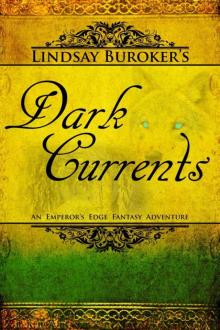 Dark Currents
Dark Currents The Dragon Blood Collection, Books 1-3
The Dragon Blood Collection, Books 1-3![Hunted [The Flash Gold Chronicles] Read online](http://i1.bookreadfree.com/16/hunted_[the_flash_gold_chronicles]_preview.jpg) Hunted [The Flash Gold Chronicles]
Hunted [The Flash Gold Chronicles]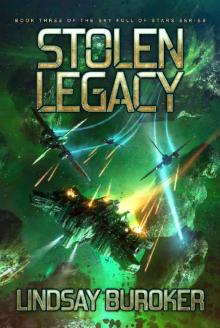 Stolen Legacy
Stolen Legacy Snake Heart
Snake Heart Shattered Past
Shattered Past Star Nomad
Star Nomad Patterns in the Dark
Patterns in the Dark Torrent
Torrent The Rogue Prince
The Rogue Prince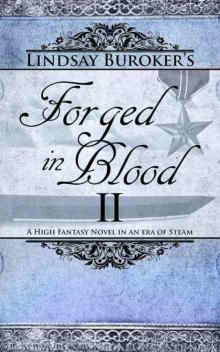 Forged in Blood II
Forged in Blood II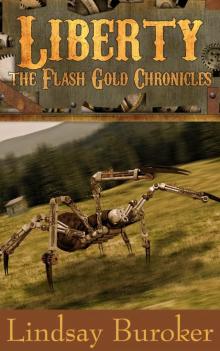 Liberty
Liberty The Fowl Proposal Bonus Scenes
The Fowl Proposal Bonus Scenes Forged in Blood I
Forged in Blood I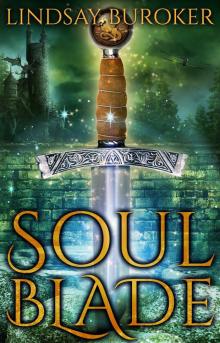 Soulblade
Soulblade Perilous Hunt
Perilous Hunt 05 Dragon Blood: The Blade's Memory
05 Dragon Blood: The Blade's Memory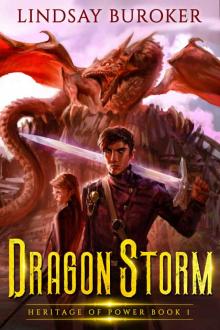 Dragon Storm
Dragon Storm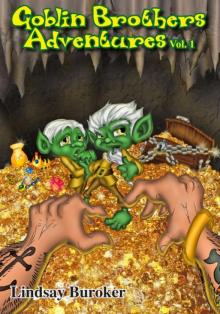 The Goblin Brothers Adventures
The Goblin Brothers Adventures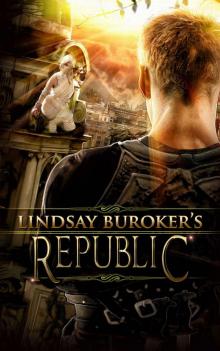 Republic
Republic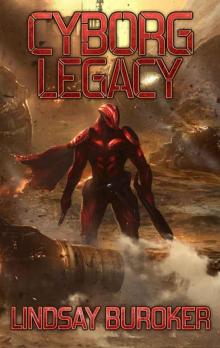 Cyborg Legacy
Cyborg Legacy Origins
Origins Beginnings: Five Heroic Fantasy Adventure Novels
Beginnings: Five Heroic Fantasy Adventure Novels Warrior Mage
Warrior Mage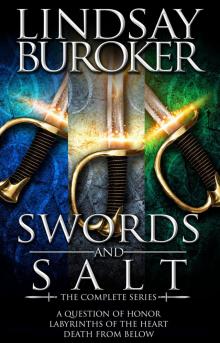 Swords and Salt - the Complete Series
Swords and Salt - the Complete Series 6.0 - Raptor
6.0 - Raptor Destiny Unchosen
Destiny Unchosen Balanced on the Blade's Edge
Balanced on the Blade's Edge Elven Doom (Death Before Dragons Book 4)
Elven Doom (Death Before Dragons Book 4)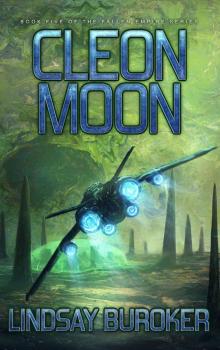 Cleon Moon
Cleon Moon Oaths (Dragon Blood, Book 8)
Oaths (Dragon Blood, Book 8) Crossfire (Star Kingdom Book 4)
Crossfire (Star Kingdom Book 4) Dragon Tear (Agents of the Crown Book 5)
Dragon Tear (Agents of the Crown Book 5)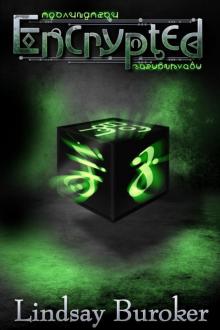 Encrypted
Encrypted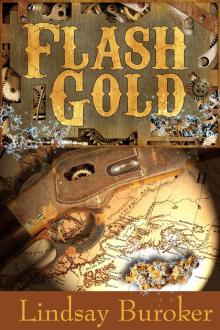 Flash Gold
Flash Gold Enigma
Enigma_preview.jpg) Shadows Over Innocence (an Emperor's Edge short story)
Shadows Over Innocence (an Emperor's Edge short story) Decrypted
Decrypted Mist and Magic
Mist and Magic Starseers
Starseers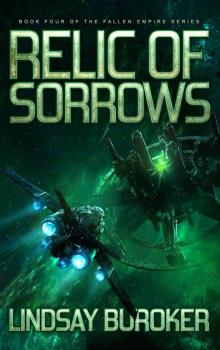 Relic of Sorrows
Relic of Sorrows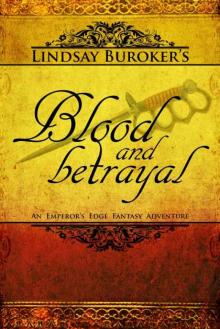 Blood and Betrayal
Blood and Betrayal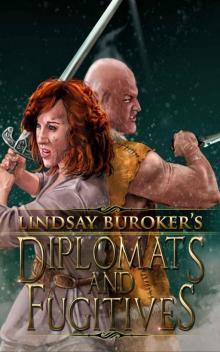 Diplomats and Fugitives
Diplomats and Fugitives_preview.jpg) Balanced on the Blade's Edge (Dragon Blood, Book 1)
Balanced on the Blade's Edge (Dragon Blood, Book 1) The Emperor's Edge, no. 1
The Emperor's Edge, no. 1 Gold Dragon
Gold Dragon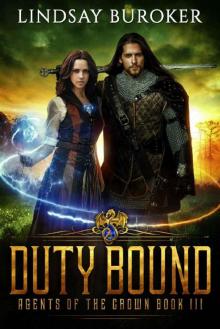 Duty Bound
Duty Bound Secrets of the Sword 2 (Death Before Dragons Book 8)
Secrets of the Sword 2 (Death Before Dragons Book 8) Peacemaker
Peacemaker Short Stories from the Star Kingdom
Short Stories from the Star Kingdom Shockwave
Shockwave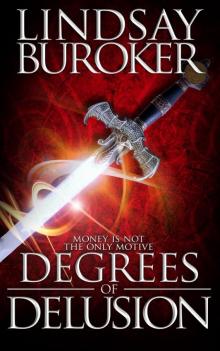 Degrees of Delusion
Degrees of Delusion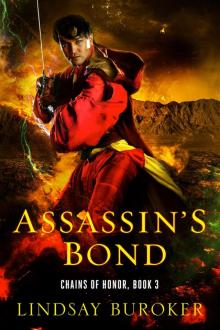 Assassin's Bond (Chains of Honor, Book 3)
Assassin's Bond (Chains of Honor, Book 3)_preview.jpg) The Emperor's Edge (a high fantasy mystery in an era of steam)
The Emperor's Edge (a high fantasy mystery in an era of steam)_preview.jpg) Solstice Day Gifts (an Emperor's Edge Short Story)
Solstice Day Gifts (an Emperor's Edge Short Story) Fractured Stars
Fractured Stars Honor's Flight
Honor's Flight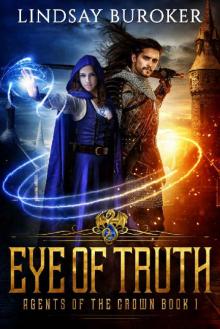 Eye of Truth
Eye of Truth Arkadian Skies
Arkadian Skies Ship of Ruin
Ship of Ruin Unraveled
Unraveled Blood Ties
Blood Ties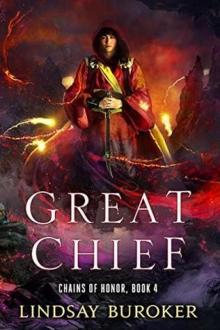 Great Chief
Great Chief End Game
End Game Conspiracy
Conspiracy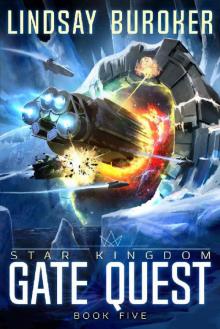 Gate Quest (Star Kingdom Book 5)
Gate Quest (Star Kingdom Book 5)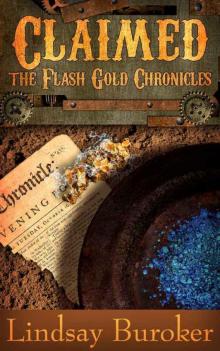 Claimed
Claimed Under the Ice Blades
Under the Ice Blades Hero Code
Hero Code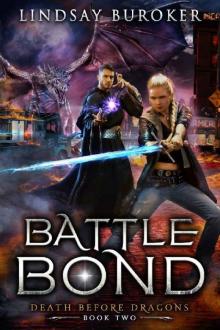 Battle Bond: An Urban Fantasy Dragon Series (Death Before Dragons Book 2)
Battle Bond: An Urban Fantasy Dragon Series (Death Before Dragons Book 2) Blood Charged
Blood Charged Angle of Truth
Angle of Truth Junkyard
Junkyard Agents of the Crown- The Complete Series
Agents of the Crown- The Complete Series Planet Killer (Star Kingdom Book 6)
Planet Killer (Star Kingdom Book 6) Shadows Over Innocence
Shadows Over Innocence Forged in Blood I ee-6
Forged in Blood I ee-6 Sinister Magic: An Urban Fantasy Dragon Series (Death Before Dragons Book 1)
Sinister Magic: An Urban Fantasy Dragon Series (Death Before Dragons Book 1)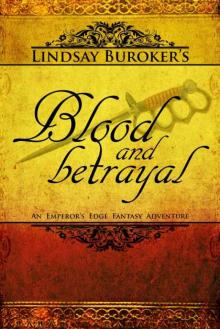 Blood and Betrayal (The Emperor's Edge Book 5)
Blood and Betrayal (The Emperor's Edge Book 5) Smuggler Ship
Smuggler Ship The Rogue Prince (Sky Full of Stars, Book 1)
The Rogue Prince (Sky Full of Stars, Book 1)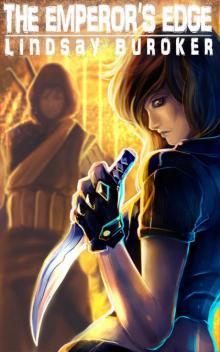 The Emperor's Edge (a high fantasy adventure in an era of steam)
The Emperor's Edge (a high fantasy adventure in an era of steam) Great Chief (Chains of Honor, Book 4)
Great Chief (Chains of Honor, Book 4)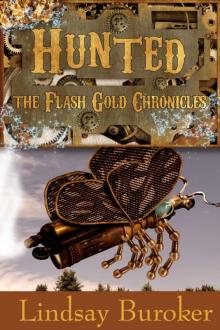 Hunted fgc-2
Hunted fgc-2 Shadows Over Innocence (emperor's edge)
Shadows Over Innocence (emperor's edge)![[Fallen Empire 00.5 - 03.0] Star Nomad Honor's Flight Starfall Station Starseers Last Command Read online](http://i1.bookreadfree.com/i/03/22/fallen_empire_00_5_-_03_0_star_nomad_hon_starfall_station_starseers_last_command_preview.jpg) [Fallen Empire 00.5 - 03.0] Star Nomad Honor's Flight Starfall Station Starseers Last Command
[Fallen Empire 00.5 - 03.0] Star Nomad Honor's Flight Starfall Station Starseers Last Command Arkadian Skies: Fallen Empire, Book 6
Arkadian Skies: Fallen Empire, Book 6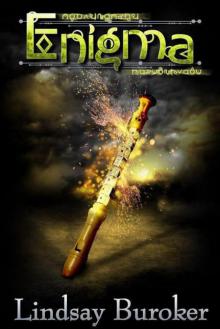 Enigma (emperor's edge)
Enigma (emperor's edge)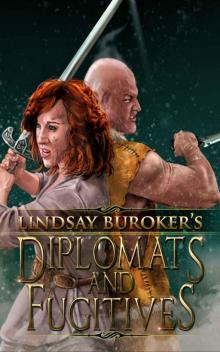 Diplomats and Fugitives (The Emperor's Edge Book 9)
Diplomats and Fugitives (The Emperor's Edge Book 9)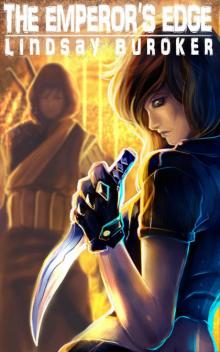 The Emperor's edge tee-1
The Emperor's edge tee-1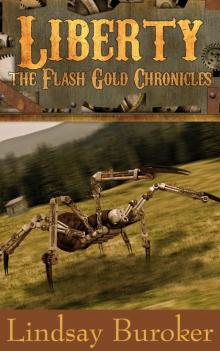 Liberty (Flash Gold, #5)
Liberty (Flash Gold, #5) Starseers: Fallen Empire, Book 3
Starseers: Fallen Empire, Book 3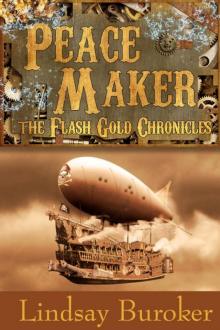 Peacemaker fgc-3
Peacemaker fgc-3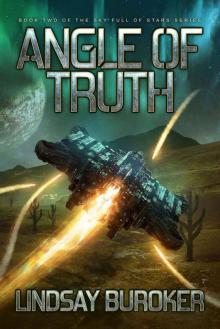 Angle of Truth (Sky Full of Stars, Book 2)
Angle of Truth (Sky Full of Stars, Book 2) Perilous Hunt: Fallen Empire, Book 7
Perilous Hunt: Fallen Empire, Book 7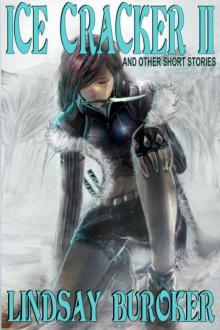 Ice Cracker II (emperor's edge)
Ice Cracker II (emperor's edge)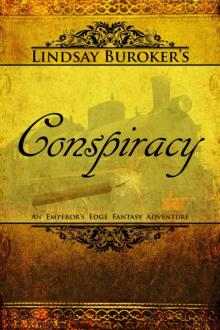 Conspiracy (The Emperor's Edge Book 4)
Conspiracy (The Emperor's Edge Book 4) Decrypted (Encrypted #2)
Decrypted (Encrypted #2) Forgotten Ages (The Complete Series)
Forgotten Ages (The Complete Series)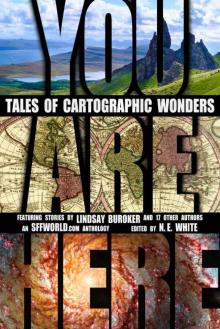 You Are Here: Tales of Cartographic Wonders
You Are Here: Tales of Cartographic Wonders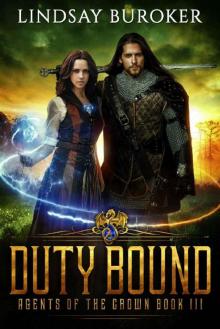 Duty Bound (Agents of the Crown Book 3)
Duty Bound (Agents of the Crown Book 3) Snake Heart (Chains of Honor Book 2)
Snake Heart (Chains of Honor Book 2)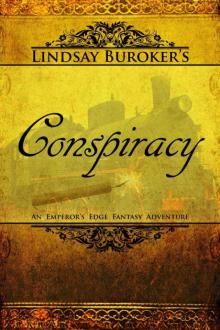 Conspiracy ee-4
Conspiracy ee-4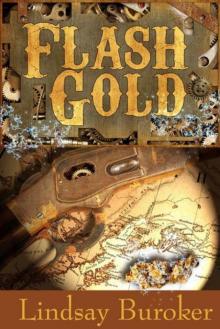 Flash Gold fgc-1
Flash Gold fgc-1 Fallen Empire 1: Star Nomad
Fallen Empire 1: Star Nomad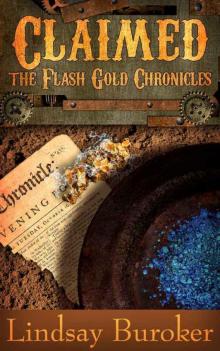 Claimed (The Flash Gold Chronicles, #4)
Claimed (The Flash Gold Chronicles, #4)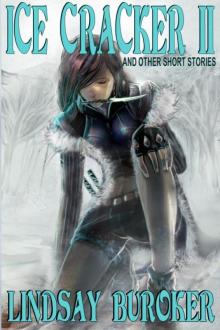 Ice Cracker II (and other short stories) (The Emperor's Edge)
Ice Cracker II (and other short stories) (The Emperor's Edge) Fallen Empire 2: Honor's Flight
Fallen Empire 2: Honor's Flight Gold Dragon (Heritage of Power Book 5)
Gold Dragon (Heritage of Power Book 5)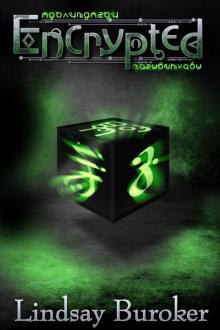 Encrypted (the emperor's edge)
Encrypted (the emperor's edge)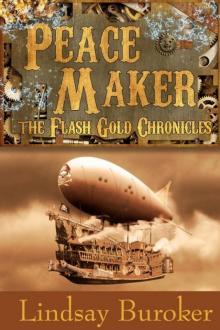 Peacemaker (The Flash Gold Chronicles, #3)
Peacemaker (The Flash Gold Chronicles, #3) Patterns in the Dark (Dragon Blood Book 4)
Patterns in the Dark (Dragon Blood Book 4)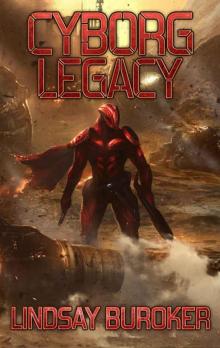 Cyborg Legacy: A Fallen Empire Novel
Cyborg Legacy: A Fallen Empire Novel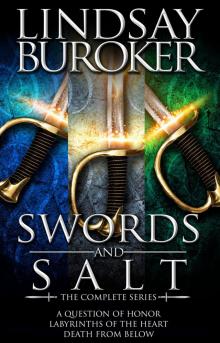 The Swords & Salt Collection
The Swords & Salt Collection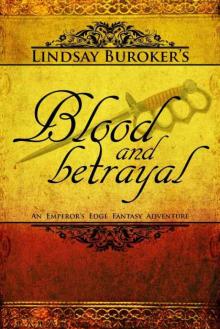 Blood and Betrayal ee-5
Blood and Betrayal ee-5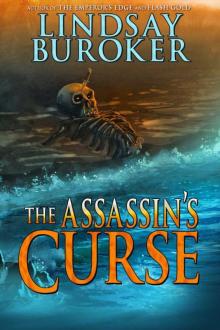 The assassin curse
The assassin curse Warrior Mage (Book 1)
Warrior Mage (Book 1)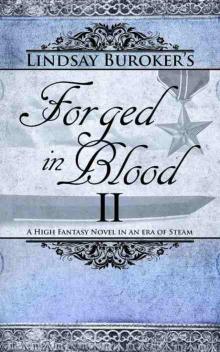 Forged in Blood II ee-7
Forged in Blood II ee-7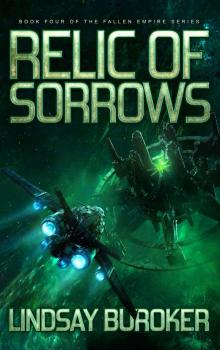 Relic of Sorrows: Fallen Empire, Book 4
Relic of Sorrows: Fallen Empire, Book 4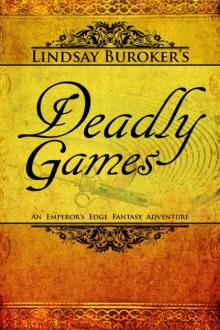 Deadly Games ee-3
Deadly Games ee-3 Elven Fury (Agents of the Crown Book 4)
Elven Fury (Agents of the Crown Book 4) Torrent rar-1
Torrent rar-1